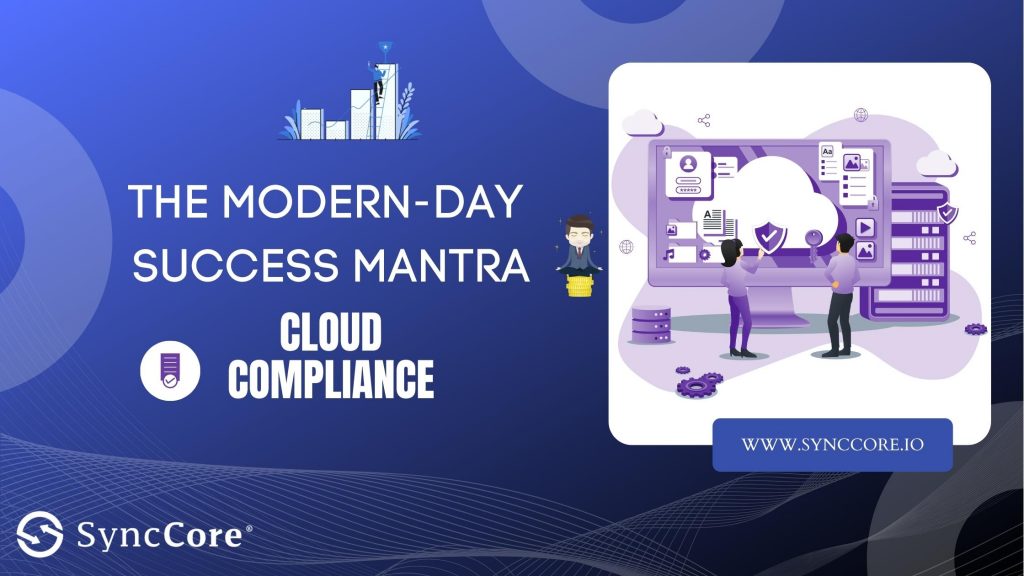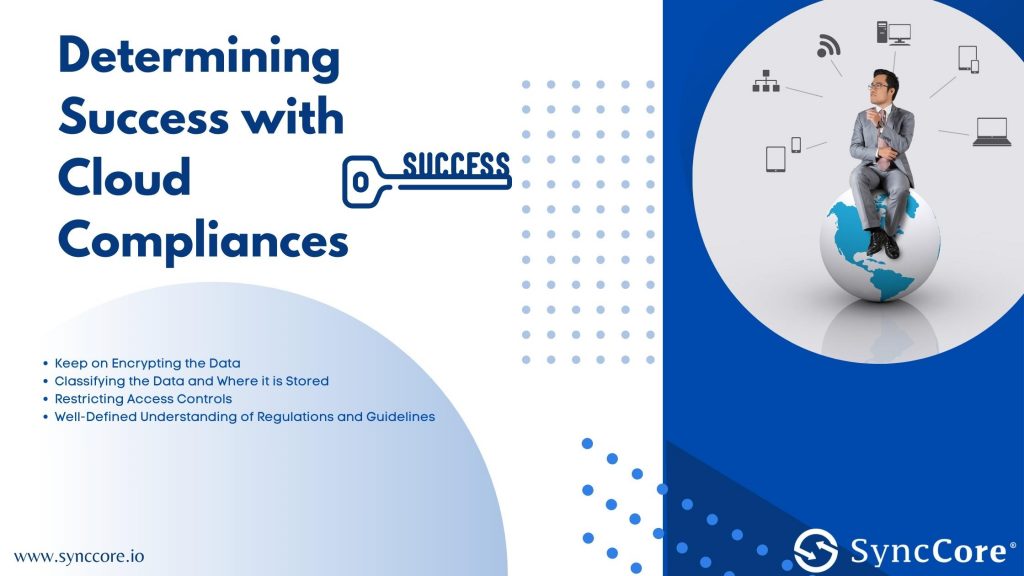Table of Contents
Success Mantra Cloud Compliance
After reading this article, you may be wondering how Cloud-based compliances contribute to an organization’s success. Read the following section to learn why Cloud compliances are considered the modern-day success mantra for any firm.’

For many enterprises, ensuring Cloud compliance has been a big concern. As soon as a user migrates his essential data and apps to cloud hosting, the demand for cloud compliances increases inexorably. Previously, Cloud Service Providers (CSPs) did not place a premium on data security or compliance with industry standards and regulations. Their main focus was on providing end-users with cloud-based data storage. Cloud Service Providers are increasingly offering their Cloud hosting services by the newest industry compliances in response to the growing demand for tight data laws across nations.
Determining Success with Cloud Compliances

Keep on Encrypting the Data
The following step is to encrypt the data after the user has completed the user’s categorization. When essential information is encrypted, it is protected from all types of online threats and attacks. Furthermore, data encryption ensures that it complies with a company’s numerous compliance requirements. Almost all major CSPs now offer encryption, and users must know what kind of encryption is available. Cloud users must be mindful of cloud encryption at all times, whether in transit or during movement. Specific standard protocols are implemented during the data transit phase to ensure an encrypted connection between users and Cloud hosting servers.
CSPs typically create virtual networks by restricting internal access and encrypting traffic flowing between VMs in the Cloud. Virtual networks also aid in the reduction of various dangers associated with data theft.
Classifying the Data and Where it is Stored
Understanding where user data is stored is another critical part of Cloud compliance. Users must know where their information is stored and what safeguards to secure it during audits and SLA signing. Users of the cloud should carefully evaluate CSPs based on these criteria and acquire detailed documentation on data storage. Most industry standards and data security laws require CSPs to host and keep data within a country’s geographic limits. ESDS is an utterly Indian CSP that hosts its valued clients’ data across its best-in-class infrastructure in India. In India, there are three rated data centers in diverse locations.
Restricting Access Controls
The lack of effective authentication and privileged access is frequently the primary cause of data breaches within a company. MFA (Multi-Factor Authentication) strategies are commonly thought to be difficult and time-consuming. Advanced security measures, such as multi-factor authentication (MFA), can be instrumental in preventing all significant security concerns. SSO (Single Sign-On) is a convenient solution to consider, but it can potentially increase the risk of hacking if the user credentials are compromised.
Using MFA methods is the best way to prevent any data or credential breach. MFA is a secure method that makes it harder for hackers and cyber-attackers to access a network. Apart from the login credentials, a secondary authentication source is required for logging in. Users can utilize MFA to reduce unauthorized certificates for obtaining sensitive information.
Well-Defined Understanding of Regulations and Guidelines
A crucial feature of Cloud Computing is compliance with numerous industry standards and laws. These rules can be municipal, national, or even international in scope. Local and national submissions may be valid for a particular country or group of countries, but global compliances must be adhered to. CSPs are coping with Cloud Compliances through specialized teams as technology advances. Such dedicated compliance teams ensure that a company’s compliance needs are met.
From the user’s standpoint, compliance standards and processes must be fully understood. The user’s CSP must be continually compliant with the most recent standards, and all supporting paperwork for these compliances and measures must be available.
Conclusion
With cloud hosting comes a slew of rules and compliance requirements that these CSPs must adhere to. The bulk of Cloud Service Providers are now aware of these compliances and are basing their services on them. These regulations ensure that data stored in the cloud is safe and secure from all types of online threats and attacks. ESDS, India’s most trusted CSP, provides all of its best-in-class services via its many Cloud hosting platforms, compliant with various industry standards, rules, and compliances.
Read More:



